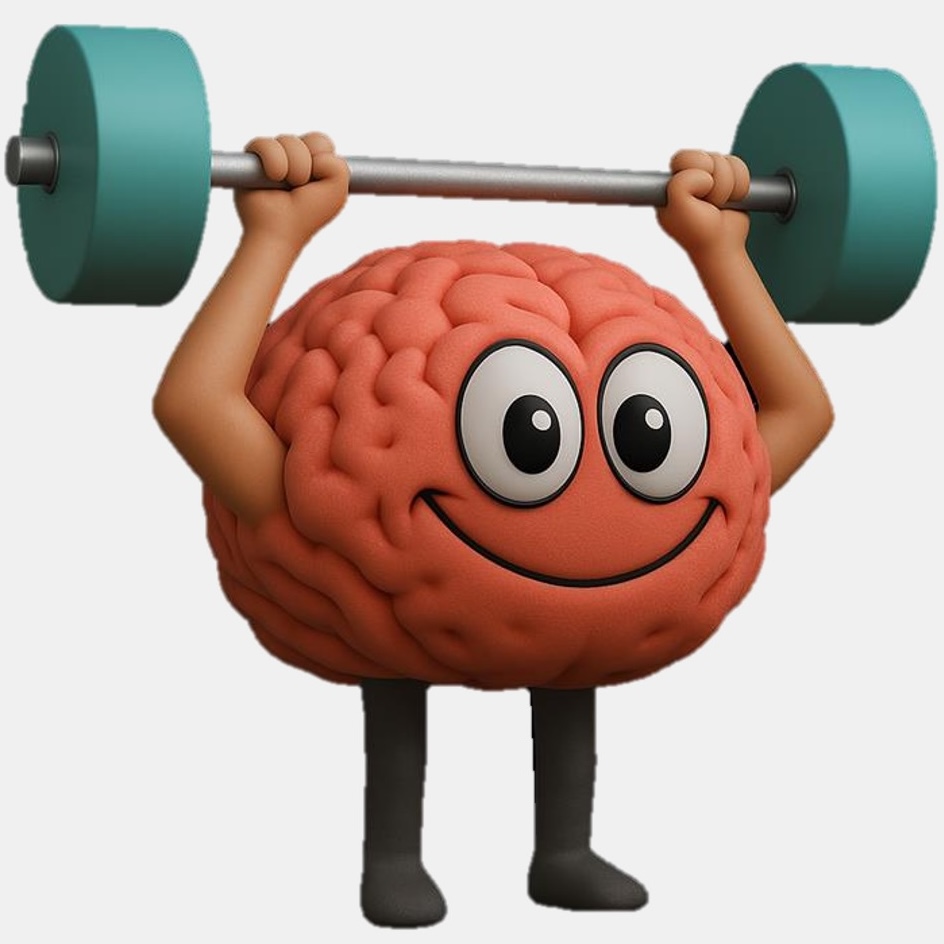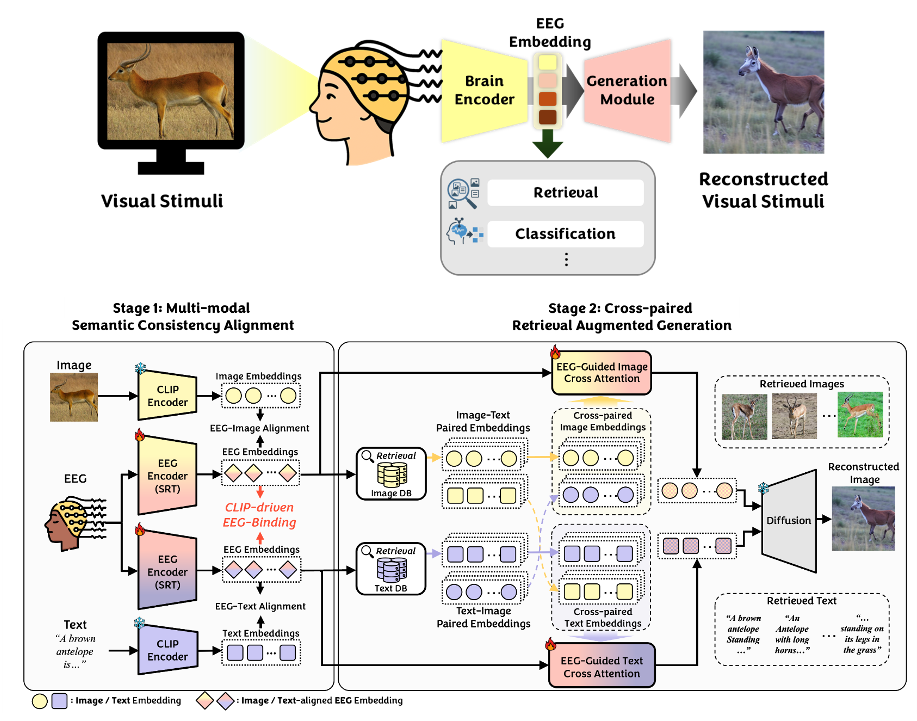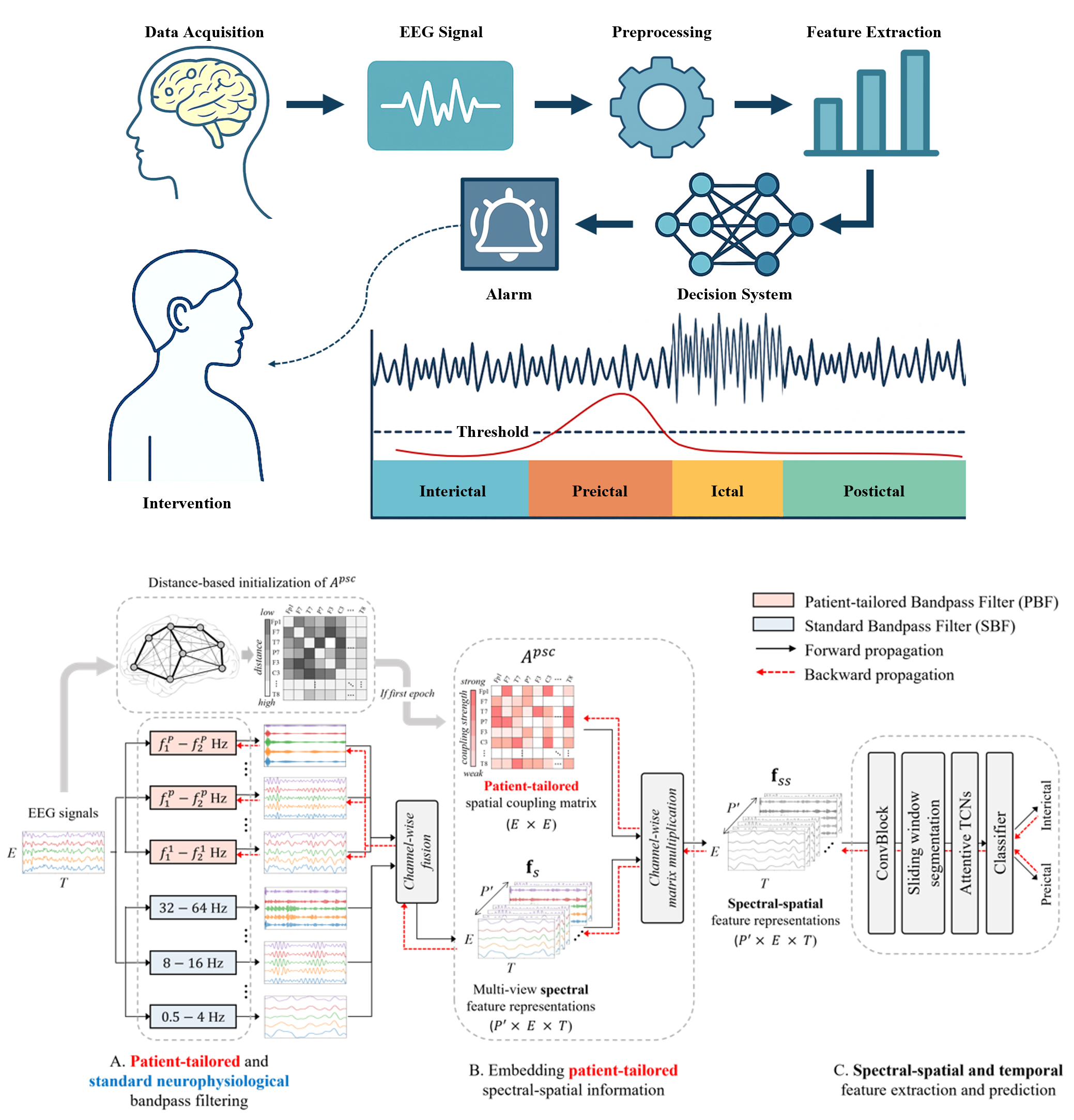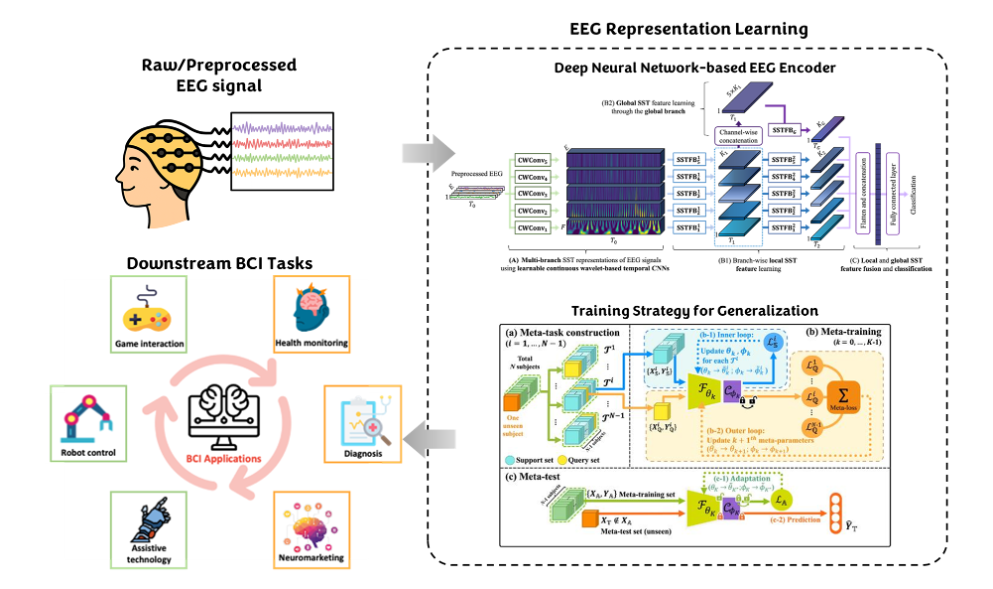About team BCI
Our team integrates brain signals with advanced AI technologies to gain deeper insights into human cognition and physiology. ✨️

● Mission:
To develop practical and generalized real-world BCI systems by leveraging cutting-edge AI technologies.
● Scope:
Broad BCI paradigms spanning motor imagery, visual reconstruction, and emotion decoding, with extensions to clinical applications including seizure prediction.
● Goal:
Designing robust and generalizable brain decoding pipelines with high-performance EEG encoders, to drive next-generation BCI systems.
Available internship topics
● Developing Interpretable and Channel-Agnostic EEG Encoders for Cross-Subject Generalization
● Developing methods to decode meaningful visual information from EEG, enabling reconstruction or alignment with visual stimuli.
Our research topics
Visual Brain Decoding

● Visual Brain Decoding aims to reconstruct or classify what a person sees based on their brain activity in response to visual stimuli.
● We aim to develop robust AI models capable of accurately decoding visual perception and generating high-quality reconstructions of perceived stimuli from neural signals.
Related publications
[Under Review] SeeEEG: Semantic-aware EEG-based Multi-Modal Retrieval-Augmented Generation for High-Fidelity Visual Brain Decoding
[BCI’25] Visual Decoding using a Learnable Wavelet-based Spatial-Spectral-Temporal EEG Embedding
Epileptic Seizure Diagnosis & Prediction

● Epileptic Seizure Diagnosis and Prediction involves analyzing EEG signals to detect and forecast epileptic seizures by uncovering precursors in neural activity.
● We aim to develop AI models that learn from complex patterns in EEG to enable early and reliable seizure prediction—supporting early intervention, clinical decision-making, and improved patient safety.
Related publications
[Under Review] EEG-based Epileptic Seizure Prediction with Patient-Tailored Spectral-Spatial-Temporal Feature Learning
[BCI’25] Curriculum Learning with Sampling Scheduler for Imbalanced EEG-Based Seizure Detection
Brain-Computer Interface: Emotion Recognition, Motor Imagery

● Our team specializes in exploring the potential of deep learning methods to extract informative features from EEG signals within diverse BCI paradigms.
● Our team's focus extends to not only investigating personalized approaches for adapting BCI systems to individual users, but also pioneering the development of a robust and generalized BCI framework designed for broad applicability.
Related publications
[ESWA’24] A learnable continuous wavelet-based multi-branch attentive convolutional neural network for spatio–spectral–temporal EEG signal decoding
[ESWA’24] META-EEG: Meta-learning-based class-relevant EEG representation learning for zero-calibration brain–computer interfaces (co-worked with molecular AI team)
[TSMC’24] MARS: Multiagent Reinforcement Learning for Spatial—Spectral and Temporal Feature Selection in EEG-Based BCI (co-worked with RL team)



